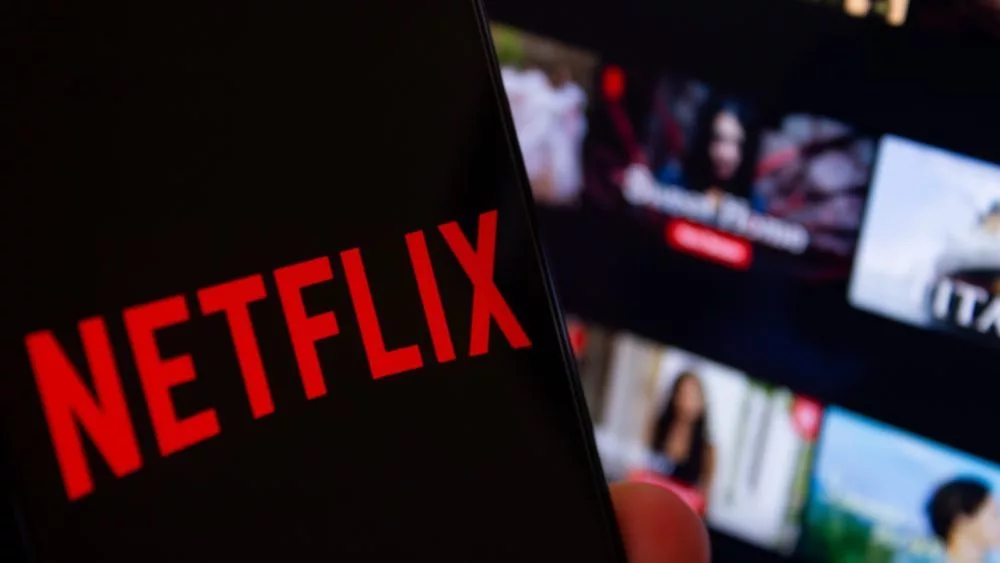
Mitch Lowe is truly the local boy who made good. He called Mill Valley home for a number of years and went on to be one of the founders of Netflix, the president of Red Box Inc. and the CEO of MoviePass Inc.
He and his brother Mark also owned and operated the Video Droid chain, spanning 14 different locations in San Francisco and the North Bay. The video rental company was regarded as a gem by movie connoisseurs. It featured a mix of mainstream films, forgotten classics, indie productions and international flicks. The stores, however, were more than a deep library of films and snacks. The Droid boasted staffs of people persons and movie geeks. They were quirky centers jammed with everything from Sundance darlings to Hollywood masterpieces to genre defying stories to Japanese anime.
Video Droid customers weren’t the run of the mill consumers looking for something to watch while scarfing popcorn. Those with Droid cards tucked snuggly in their wallets often were looking for something beyond the latest Hollywood blockbuster. They wanted the hard-to-find, the straight-to-video and films that required subtitles.
And Mitch Lowe dug those folks.
Lowe in fact ended up with the Video Droid chain through happenstance. He made a $20,000 loan to the owner of the chain, but when the loan couldn’t be repaid, he was in the videos business.
A couple quick notes here. I knew Lowe a little from my days at the Mill Valley Record, the quintessential small-town newspaper where I covered everything from city council meetings to Little League parades, which at times were almost indistinguishable from each other. Lowe was a member of the Mill Valley Chamber of Commerce and was more than generous with his time and insights on the community. He was affable, quick with a smile and a kind word, and a successful businessman. More full disclosure: I was a Droider. I’m not a student of the cinema, but my neighbor managed the San Rafael outlet.
I recently reached out to Mitch via email and phone and was unable to connect. And in fairness, had I reached him, he probably would have told me he couldn’t talk on the advice of counsel, as his legal woes are an ongoing tale.
But if they make a movie of Lowe’s life, the elevator pitch would go something like Rocky meets The Wolf of Wall Street only with sweeter music. Lowe is the outsider who never went to college but loves films and understands how to reach people, along the way finding improbable success. But in the end, he migrates from a creative entrepreneur to someone living in the gray area between good intentions and the ends-justify-the means.
And then he gets caught.
The downfall
In September 2024, Lowe pled guilty to one charge of securities fraud tied to his time atop the company MoviePass, which promised to allow its members to view unlimited movies in theaters for just $9.95 a month.
He has a status conference this month in Miami which could determine just how long he will be a guest of Uncle Sam. Securities fraud is a federal beef. Lowe has agreed to cooperate with the feds in the hopes of knocking his sentence down, which could top out at five years.
In a statement at the time, attorneys Margot Moss and David Oscar Markus said, “Mitch is a good man who is looking to move forward with his life. He has accepted responsibility for his actions in this case and will continue to try to make things right.”
Lowe also faces a civil issue with the Securities and Exchange Commission over the same matter. As is standard practice, the SEC will wait for the DOJ to complete its case before pressing its own.
A little perspective here. Lowe, who now calls Miami Beach and Puerto Vallarta, Mexico home, is 73, so moving into a federal prison for five years is not a little time out. The clock is ticking for him. In the word of the late great Dodger announcer Vin Scully, “He is day to day, but then again, aren’t we all?”
And like anyone facing a possible prison term, Lowe needs to consider his family. He has a trio of grown kids and his wife of 37 years.
Lowe’s current legal challenges spring from his tenure at MoviePass, a subscription-based company founded in San Francisco in 2011. Lowe began advising the company in 2014 and moved into the c-suite in 2016 as CEO and continued in that role until 2020. Lowe began experimenting with different subscription models, allowing members to see movies with different frequencies based on how much they paid per month. At the end of 2016, MoviePass had 20,000 subscribers.
But the subscription model proved to be inconsistent and like many technology-driven companies, MoviePass required more capital. Studio Movie Grill invested in the company in 2016, becoming an equity partner while the two companies pondered a food component. But Studio Movie Grill’s cash infusion proved too little, and a year later New York-based analytics company Helios and Matheson (HMNY) became majority owner of MoviePass. When Helios made its buy in, a new model was announced allowing subscribers to watch one film a day for $9.95 a month.

At the time of the Helios investment, MoviePass said that its $9.95 monthly plan could allow for profitability or, at the very least, the company could break even. Meanwhile, lured by the low monthly rate, subscriptions grew. In October 2017, MoviePass boasted subscribers totaling 600,000. By June 2018, the company claimed 3 million paying subscribers.
While Lowe was successful in building out the subscriber base, the company’s thirst for capital continued to grow as well. The parent company Helios advanced $90 million to MoviePass and eventually owned almost 92% of MoviePass.
While the cut-rate subscriptions were designed to boost the user base with an eye toward using new data to target ads, a 2022 indictment of Lowe along with Helios and Matheson Chairman Ted Farnsworth told a different story. The indictment alleged the $9.95 rate was simply a marketing ploy and couldn’t cover costs. Rather it was designed to boost membership and bump Helios share price which in turn would attract investors to the public company.
The Justice Department indictment also charged that Lowe and Farnsworth told investors it utilized “big data” and “Artificial Intelligence” platforms to generate revenues from MoviePass users’ data. But the company didn’t have the ability to collect that data and monetize it and the pair of execs knew it.
The bottom line, according to the indictment, is MoviePass didn’t have multiple revenue streams and instead was splashing around in red ink. But Lowe and Farnsworth continued to sing the company’s praises in SEC filings, to investors via the press, and in podcast and TV interviews, presenting a rosy picture when the truth was the garden was drying up quickly and the roses were nothing but thorns.
Finally, according to the indictment, MoviePass staff were instructed to throttle back the ability of some subscribers to utilize the service in an effort to cut costs, without telling their customers. Instead, passwords were secretly changed and users were locked out of the system.
Under Lowe, MoviePass offered a dizzying array of programs and platforms that featured different price points, offers and services for its subscribers. Behind the scenes, the company was burning capital and bleeding red. At various times, MoviePass made moves to co-acquire and distribute films, sell swag while Helios tried to sell debt and stock worth $1.2 billion.
A pair of class-action lawsuits against MoviePass were filed in 2018 and 2019, alleging the company had not treated its subscribers honestly. By 2021, it was all over but the shouting as a bankruptcy judge allowed the sale of the company to its original founder, while Lowe and Farnsworth braced for visits from the DOJ lawyers.
The Backstory
Hollywood loves an unorthodox tale, and Lowe has that in spades. He spent his teen years in Europe, smuggling goods and money. He never went to college, instead he got a master’s degree in how life works.
He called Tamalpais Valley home and one of the Video Droid locations was in his own neighborhood. He sat on the Tamalpais Area Community Plan Steering Committee in 1992.
He worked on behalf of Rock the Vote and, speaking of politics, he was president of the Mill Valley Chamber of Commerce. He was also the president of the Video Software Dealers Association.
His stint with Video Software led to his coming on board at Netflix, whose management corralled Lowe at a Video Software convention.
Lowe also served on the board of Medbox Inc., a Los Angeles-based cannabis consulting company that sold vending machines known as “Medbox” devices capable of dispensing marijuana on the basis of biometric identification. Lowe joined the board in March 2014 when shares in the company were selling for almost $28 each.
But the reality was that Medbox was struggling, and the only revenues were derived from illegal stock sales to a shell company controlled by the Medbox founder. The SEC rolled the company up in 2017 with the founder agreeing to pay $12 million in fines and restitution.
Medbox woes had nothing to do with Lowe, but the fraud emanating from Medbox was simply a preview of coming attractions for Lowe.
If it sounds like Lowe had stories to tell, you are correct. He authored a book called Watch and Learn: How I Turned Hollywood Upside Down with Netflix, Redbox and MoviePass. The subtitle was Lessons in Disruption. The 2022 book can still be found on Amazon.
Lowe found the world wanted to hear from him, and as a speaker at various conferences he turned a nice dollar. “Mitch speaks on the future of leadership, entrepreneurship, company culture and the $2 trillion entertainment industry. Mitch also speaks on strategic product launches—and the critical roles of intuition, perseverance, analytical thinking and love.”
Speaker fees ranged from $50,000 to $75,000 and he could be booked via a dozen different speaker entities.
Writing this story brings me no joy. There are times when I write an investigative piece, and I think the perpetrator had it coming. They are often driven by avarice or jealousy or revenge.
In this case, I have no solid evidence of what drove Lowe to game the system and shortchange both MoviePass customers and investors.
But do this kind of work long enough and you develop some instincts as to what drives people to do the things they do. Sometimes I’m right, other times I am mistaken.
Here, I don’t know. That said, this is a quote from Lowe’s book about MoviePass’ failure. “It truly was embarrassing and hurtful. I tried as hard as I could, but I should have tried harder. I should have been more thoughtful, and I should have been more strategic. But I’ve got to live with that.”
Clearly this was written in hindsight, and Lowe could have been writing to place his narrative in front of the public before the justice system dealt with him.

As a recovering Catholic, I do see him sharing his feelings and taking responsibility. No excuses and no sloughing of blame.
It isn’t perfect, but maybe that’s the way to end the Mitch Lowe story.
Que the music, roll the credits.
Bill Meagher is a contributing editor at NorthBay biz magazine. He is also a senior reporter at Manhattan-based digital financial news outlet The Deal. He covers micro and small cap equity, special purposed acquisition vehicles and the SEC.

